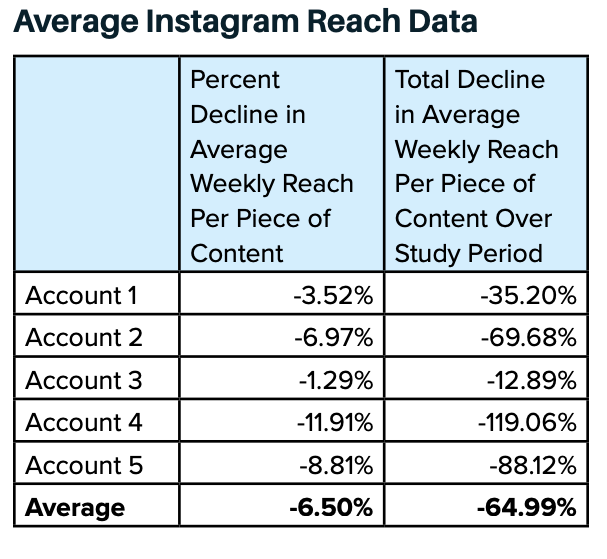Report Finds Meta’s Approach to Political Content Reduces Reach for Activist Accounts
Prithvi Iyer / Aug 13, 2024
The logos of Meta's Threads and Instagram. Shutterstock
On February 9th, 2024, Meta announced it would change its default settings to no longer recommend content about politics on Instagram and its new short messages platform, Threads. The policy aims to limit political content on the platforms by filtering such content on the Explore, Reels, and in-feed recommendations on these platforms by default.“We don’t think it’s our place to amplify political news,” Adam Mosseri, head of Instagram, told Bloomberg’s Kurt Wagner in June.
The company’s decision was met with criticism from various quarters, including civil society organizations, lawmakers, and content creators themselves. Part of the concern is that Meta has been vague about what constitutes political content. Such content could be any post that is “likely to mention governments, elections, or social topics that affect a group of people and/or society at large,” the company told Time. This definition raises alarm bells for advocacy groups concerned with democratic discourse online and prompted the advocacy group Accountable Tech to submit an open letter, signed by more than 200 content creators, highlighting their concerns. The signatories argue that Instagram, as a major source of news for many Americans, plays a crucial role in informing the public and fostering civic engagement. By limiting the reach of political content, they say, Meta may be inadvertently hindering the spread of important information.
The timing of the policy change has also drawn scrutiny from lawmakers. In a March post on X (formerly Twitter), Senator Marsha Blackburn (R-TN) pointedly questioned Meta's motives: "Instagram is now trying to suppress political content just months before the next presidential election. Why is Meta attempting to censor the democratic process?" While not technically ‘censorship,’ such statements reflect unease about the role of social media platforms in shaping democratic discourse and, thus, potentially electoral outcomes.
In an attempt to quantify the impact of this policy on the visibility and reach of political content, Accountable Tech “worked with five large Instagram accounts that regularly post ‘political’ content to delve into the data and determine trend lines for their reach over time before, during, and after Meta reportedly began implementation of this new policy the week of March 18, 2024,” according to a report the organization published this week.
Methods and Key Findings
Accountable Tech analyzed data from five prominent Instagram accounts, each with over 10,000 followers. The accounts included former Secretary of State and 2016 Democratic presidential candidate Hillary Clinton; Feminist, a women-led non-profit media company; Human Rights Campaign; non-profit LGBTQ advocacy organization GLAAD; and Field Team 6, a Democratic volunteer group focused on voter registration in key battleground states. These accounts regularly post content on political issues such as climate change, reproductive rights, LGBTQ+ advocacy, voter information, and racial justice. Because of limitations on tracking analytics, the study was conducted over an 11-week period from March 8 to May 24, 2024. Researchers tracked the weekly reach of these accounts, “along with the total number of pieces of content including posts, stories, and reels published each week for this 11-week period.”
The study found a significant decline in reach over time for all five accounts. The researchers computed the slope of the trend lines for each account, using the first week's average weekly reach per piece of content as a baseline. This approach allowed them to determine the weekly percent decline in average reach per piece of content. Across all five accounts, the study estimated a “6.5% decline in the average weekly reach per piece of content,” which translated to a 65% total decline during the 11-week study period. See this table for the breakdown by account type:

A table describing the average reach of content shared on Instagram by the six accounts examined in the research by the Accountable Tech
For its part, Meta says the decline may in part be “due to other factors,” according to a statement the company provided to Bloomberg, which was first to report on the Accountable Tech report’s findings.
A Meta spokesperson said that it’s possible the decline in views was the result of other factors, and pointed out that ebbs and flows in reach are common. He also pointed Bloomberg to the company’s post from February, and previous statements from Chief Executive Officer Mark Zuckerberg, who claimed that user feedback confirmed people are tired of political fights on his platforms.
Conclusion
The study suggests that Meta’s policy change substantially may have decreased the visibility of political content in a crucial election year. The company’s official announcement about the changes stated that it would “roll out these changes slowly over time to get this right,” suggesting further adjustments may be made. But the possibility of “other factors” aside, these results suggest Meta may have intentionally manipulated the flow of political information ahead of a volatile political season. This is especially concerning for political minority groups who use Meta’s services to access accurate information, including news about voting. Meta’s decision to shut down CrowdTangle, a social media monitoring tool used by researchers to track various phenomena on its platforms, has made it even harder to get answers and access data from the company or to determine the true scale of the effect described by the Accountable Tech experiment.
It is crucial that Meta responds to such empirically grounded criticism of its policy and takes action to reassure the public about its commitment to upholding democratic discourse on its platform. As the report notes, “the stakes have never been higher.”
Authors
